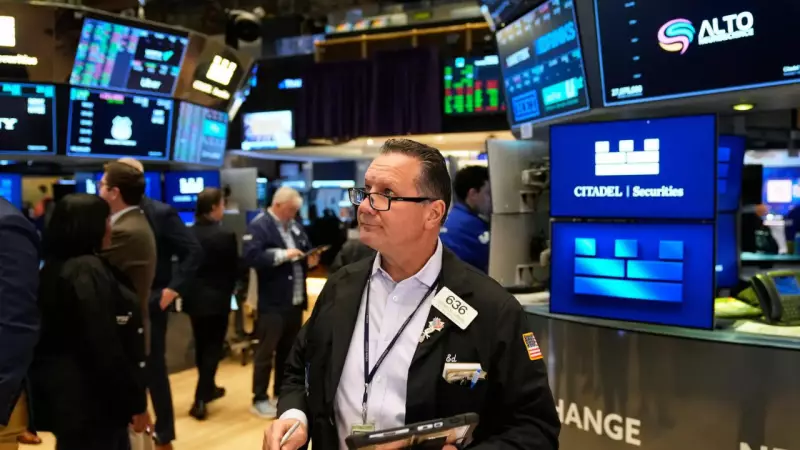
US Markets Gain Ground Amid Renewed Optimism
Wall Street witnessed a positive trading session on Wednesday, with major benchmark indices marching closer to their record peaks. This upward movement was primarily fueled by two key factors: receding anxieties over a prolonged US government shutdown and a strong recovery in the technology sector, which collectively buoyed investor sentiment.
The S&P 500 index registered a gain of 0.2% during early trading, inching near the all-time high it had set just two weeks prior. Not to be left behind, the Dow Jones Industrial Average added 127 points, building on the momentum from its record-high close the previous day. The tech-heavy Nasdaq Composite also climbed 0.3%, a rally largely driven by renewed investor interest in semiconductor stocks.
Tech and Chip Stocks Lead the Charge
Technology equities were at the forefront of this market advance, helping the markets regain their footing after a volatile start to the week. A significant boost came from Advanced Micro Devices (AMD), whose shares jumped after its CEO, Lisa Su, projected an ambitious annual compounded revenue growth rate of more than 35% over the next three to five years.
Adding to the sector's strength, shares of Nvidia, the undisputed market leader in artificial intelligence (AI) focused chips, also advanced, recovering from a series of recent losses. The broader AI sector showed signs of stabilisation after several days of sharp price swings. Nvidia's partner, CoreWeave, rose 3%, making a partial recovery after it had tumbled 17% on Tuesday due to weaker-than-expected guidance.
Shutdown Impact and Federal Reserve's Dilemma
The positive opening was foreshadowed by optimism in futures trading, which signalled hopes that the longest federal government shutdown in US history could be nearing its end. Reflecting this renewed confidence, futures on the S&P 500 and Nasdaq had gained by up to 0.6%.
However, economists issued a note of caution, warning that the shutdown has already inflicted damage on the economy. The Congressional Budget Office (CBO) estimated that a six-week closure could reduce the fourth-quarter GDP growth by approximately 1.5 percentage points.
This disruption has also led to a halt in the release of key government data on employment, inflation, and retail sales. This lack of critical information has left the Federal Reserve with limited insight into the economy's trajectory. Such uncertainty could potentially lead the Fed to postpone a widely anticipated interest rate cut in December.
Echoing the internal confusion, Fed Chair Jerome Powell acknowledged the division within the central bank over rate policy, stating that "the economy's health is unusually cloudy." Meanwhile, analysts pointed out that investor focus is shifting towards the durability of earnings, amid growing concerns that valuations in the red-hot AI stock sector have become overheated, drawing comparisons to the dot-com bubble of the year 2000.
In global markets, European indices traded mostly higher. France's CAC 40 and Germany's DAX each climbed 1.2%, while the UK's FTSE 100 was flat. In Asia, Japan's Nikkei 225 added 0.4% to close at 51,063.31, and Hong Kong's Hang Seng rose 0.9% to 26,922.73. Shanghai's Composite Index slipped marginally, while South Korea's Kospi gained a solid 1.1%. In energy markets, US crude slipped 65 cents to $60.39 a barrel, and Brent crude fell 66 cents to $64.50.





